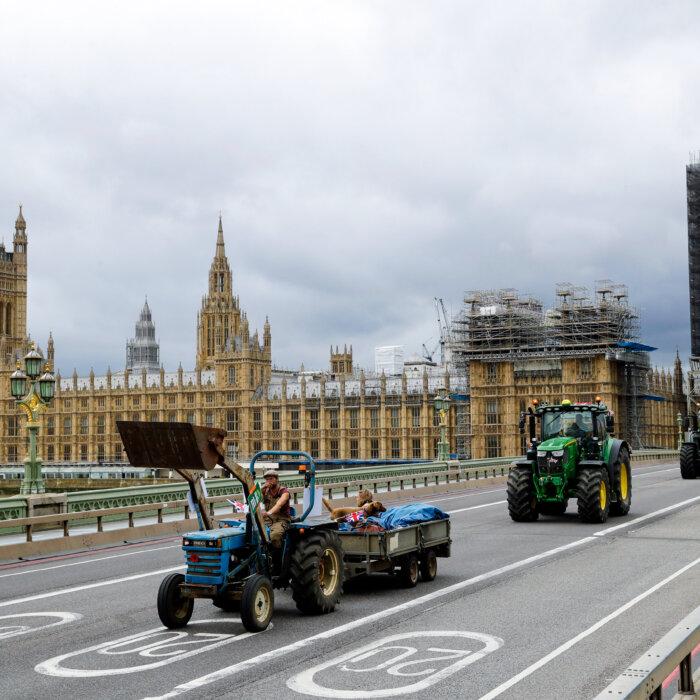Prime Minister Rishi Sunak announced the government will cut red tape to make it easier for farmers to build bigger farm shops or outdoor sports venues on their land.
Giving the keynote address at the National Farmers’ Union (NFU) annual conference on Tuesday, Mr. Sunak announced a series of measures intended to support British farmers, including increasing payments in farming schemes by an average of 10 percent and more funding for grassroots mental health support.
Mr. Sunak, the first prime minister to address the NFU conference since Gordon Brown in 2008, added that his government was “delivering on our promise to cut planning red tape that’s stopping you from diversifying.”
The Clarkson Clause
The move would help farmers struggling with local authorities to gain planning permission to repurpose farm buildings for other non-farm-related purposes, such as shops.Similar struggles were documented by Jeremy Clarkson in his Amazon Prime Video series “Clarkson’s Farm,” in which he fought to expand the Diddly Squat Farm Shop on his land near the village of Chadlington in Oxfordshire.
Mr. Clarkson’s farming contractor and “Clarkson’s Farm” star Kaleb Cooper was among the food leaders who attended Downing Street for the Farm to Fork summit on May 16, 2023, aimed at securing the UK’s supermarket supply chains, where the issue of farmers being free to diversify their assets arose.
Mr. Sunak referred to Diddly Squat in his speech, telling representatives from the food industry, “We want to give British farmers greater freedoms to make the best use of their existing buildings, whether that’s for a Diddly Squat-style farm shop or a processing facility.”
Food Security ‘Vital Part’ of National Security
Addressing farmers on Tuesday, the prime minister also announced the government was “strengthening support for your primary role to produce the nation’s food.”“Global events, including Russia’s invasion of Ukraine, have put food security back at the top of the agenda. So we'll never take our food security for granted,” he said.
The government will also increase the monitoring of food security “with a new annual food security index, which we expect to be UK wide,” and which will be made statutory when parliamentary time allows, the prime minister said.
Automation Will Reduce Reliance on Overseas Workers
Around £220 million will be earmarked for boosting productivity and resilience. This includes “future-focused technology and productivity schemes” that will assist farmers access new equipment, including automation tools the government says will help reduce the farming industry’s reliance on overseas workers.“It will also fund cost-saving energy measures, such as rooftop solar, to safeguard land for food production,” the government said in a statement.
Post-Brexit, the government said almost half of farmers in England were receiving support through new schemes, including the sustainable farming incentive, which pay farmers for things such as protecting waterways, improving soil health, and preserving hedgerows. The management payment, which recognises the cost and time involved in participating in the programme, is also being doubled from £1,000 to £2,000.







